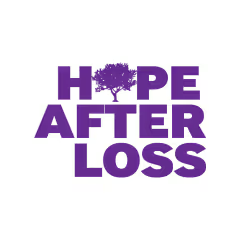Articles & Resources
Explore articles and resources designed to bring encouragement, insight, and hope for every step of the recovery journey.
The Front Line of Hope: HIA’s HopeLine
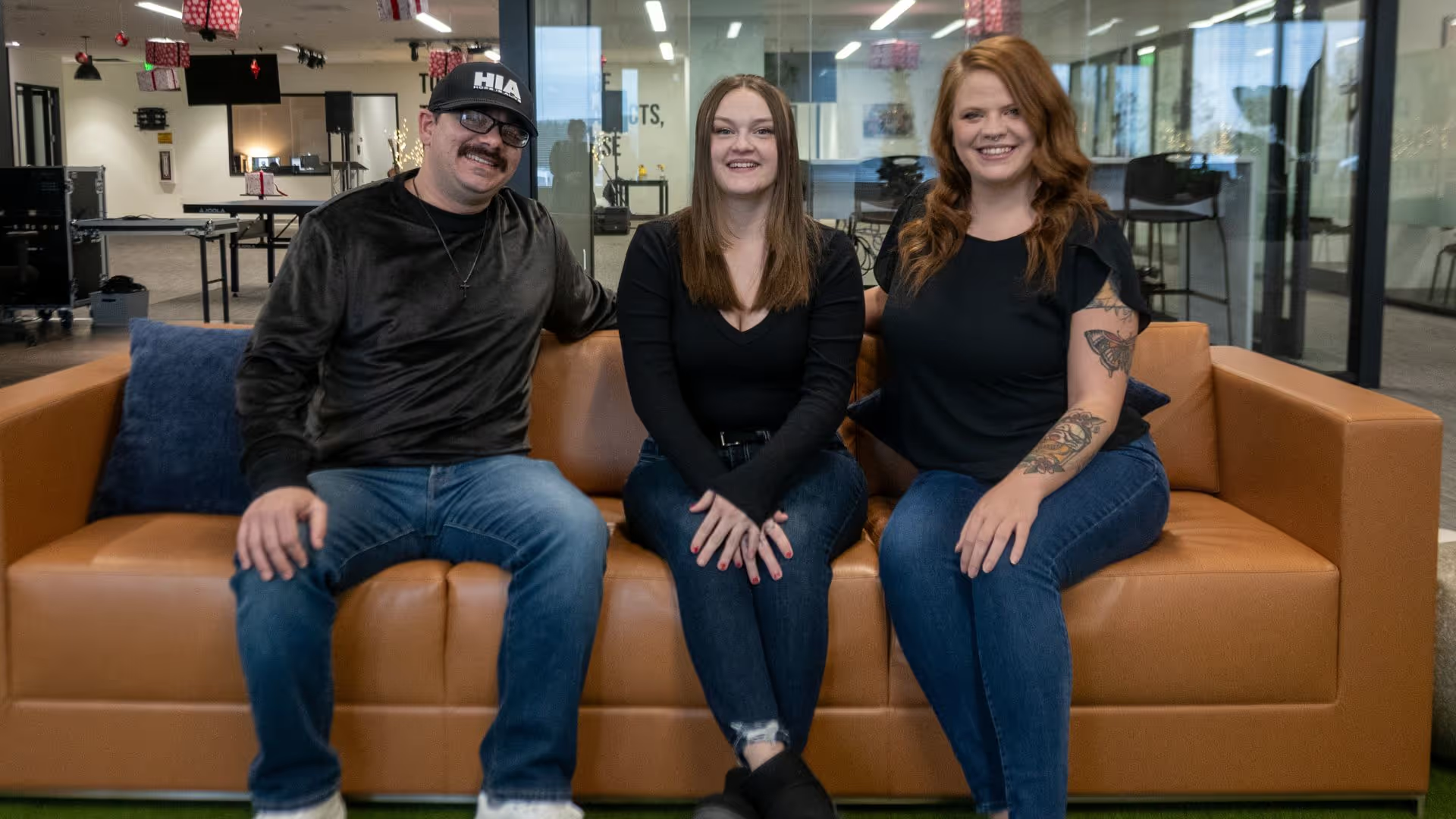
The Front Line of Hope: HIA’s HopeLine
When someone reaches out to Hope is Alive, the HopeLine is often the very first voice they hear.
Whether it’s an individual battling addiction, a family member who doesn’t know where else to turn, or someone simply overwhelmed and looking for guidance, our HopeLine serves as the front door to hope.
What is the HopeLine?
The HopeLine functions as the primary point of contact for anyone seeking help through Hope is Alive. Every day, calls come in from individuals and families navigating addiction. The HopeLine team listens first, and then works to guide each caller toward the best possible outcome.
You can think of the HopeLine as the beginning of the funnel. People start here, and from this first conversation, they are directed to the care, resources, and support that best fit their unique situation.
Hope for Addicts & Alcoholics
When someone contacts the HopeLine, our team directs them to the Hope is Alive website to place an application. Based on their application, our team determines eligibility for the Hope is Alive program. For those who qualify, the HopeLine coordinates next steps.
However, not every caller is the right fit for our program.
Hope is Alive is designed to support individuals who meet specific program criteria and can thrive within the level of care we provide. In some situations, callers need a higher or different level of care than our program is equipped to offer. This can include individuals who require medical detox, intensive clinical support, or specialized mental health services beyond our scope.
Because not every caller is the right fit for our program, our HopeLine Coordinators are also equipped to act as a resource and referral hub, connecting callers to:
- Inpatient or outpatient treatment
- Other sober living options
- Insurance-based or state-funded programs
- Outreach services
- Community resources beyond addiction recovery
Our goal is to make sure no one is left without direction, even if Hope is Alive isn’t the final destination.
Hope for Families
Beyond helping recovering drug addicts and alcoholics, the HopeLine is also a great resource for loved ones impacted by addiction.
Family members often reach out in moments of fear, exhaustion, panic, or crisis. They may be navigating a loved one who is in denial, incarcerated, actively using, or recently deceased. In many cases, they simply need someone to listen and help them understand what their options are.
Our coordinators take time to listen to each family’s story, validate their concerns, and help them understand the realities of addiction and recovery.
When appropriate, the HopeLine connects families with:
- Outreach leaders
- Family support groups
- Intervention-trained team members
- Relevant resources and next steps
The HopeLine exists to ensure that families are not left to carry the weight of addiction alone.
The Lasting Impact
Our HopeLine team doesn’t always know how a story will end. But they often get a glimpse into the impact of those first conversations later down the road.
Whether it’s a resident who remembers their name or a family member who expresses gratitude for being met with compassion during one of the hardest seasons of their life, our HopeLine Coordinators are frequently reminded of why the HopeLine matters.
For HopeLine Coordinator Jade Jolly, one call that began as a mother searching for help became a story she continues to follow today. It reminds her why answering the phone matters more than we may ever know. Click here to read her story.
Q&A with Finding Hope Coordinator Darcie Stephens
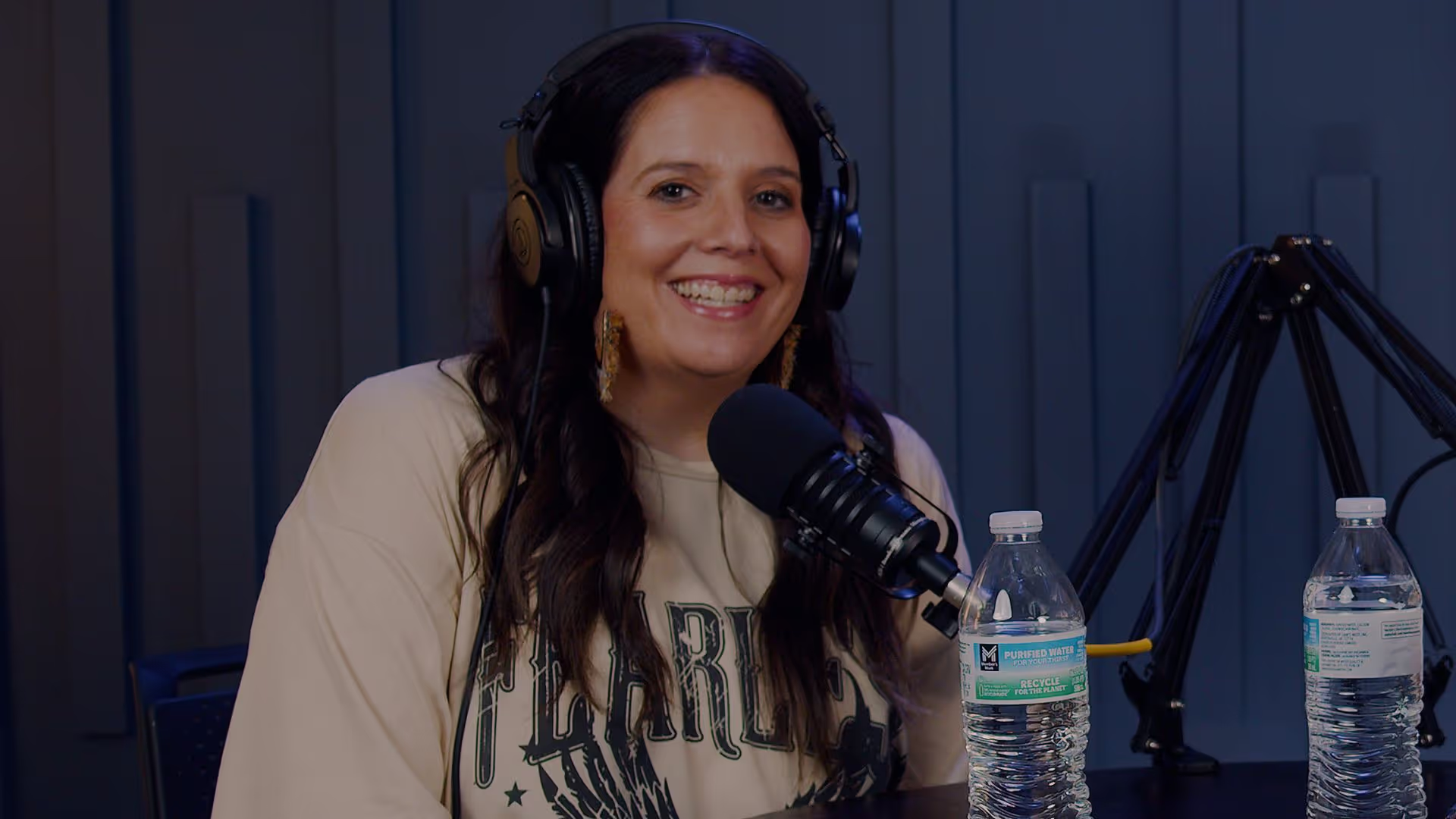
Q&A with Finding Hope Coordinator Darcie Stephens
What’s the most important thing to know when helping a loved one with addiction?
The motto of Finding Hope is simple but powerful: You're not alone, it's not your fault, and there is hope. When people come to our meetings, we throw a lot of information at them and we don’t expect them to hear or remember everything. But if they can at least hear and remember the motto, they have a great start.
When a loved one is an addict, how do you help them without hurting them?
Boundaries.
How do you draw the line between helping an addict and enabling them?
Enabling is doing something for the addict that they can do for themselves. This includes setting appointments, running errands, and so much more. It isn’t easy to draw the line between helping and enabling, but if it is something they can do themselves, stop doing it. We like to think that we're helping them by saying yes to everything, but saying no is okay too. “No” can be a complete sentence, and it is all you have to say.
When is the right time to involve outside help such as a counselor, church leader, or even law enforcement?
You should wait to involve a counselor or church leader until the addict is ready. Forcing it upon them can cause them to shut down.
As for law enforcement, they should be involved anytime the addict imposes danger. It doesn’t matter if they are endangering themselves, their family, or strangers — if danger is present, law enforcement should be involved.
It is also important to reach out for help and prompt the addict to seek help with detox. It’s important if they decide to detox on their own for them to know that they need help because it can be very dangerous.
What are healthy ways to approach the topic of addiction with a loved one — especially when it’s time to involve outside help?
One of the healthiest ways to approach a loved one’s addiction is through the use of “I feel” statements. When you only share how you are feeling, it can open their eyes to see that there is a problem. But, when you come at them with statements that start with “You” or “Your addiction,” they automatically shut down.
As for talking with them about getting help, you have to wait until they are ready. You can’t make them want their recovery more than you want it. That being said, you should have resources readily available to them for when they decide they are ready.
How do you navigate being open about your loved one’s addiction while still respecting their privacy and dignity?
First and foremost, when you are ready to share your story, focus on sharing your perspective and your side only, rather than speaking negatively about your loved one.
Second, Finding Hope meetings create a safe space. This means that if/when your loved one questions you about what you said in the meeting, you can say that what happens at Finding Hope stays at Finding Hope. Period.
Third, social media can be a grey area. If your loved one is in active addiction and denying their addiction, posting on social media can cause a sticky situation. However, if you can share your story in a healthy way, you can reach people that have no outlet so they can know that they're not alone. A lot of people look to their phone for help, making social media a powerful tool.
For more information, visit:
Oklahoma’s Sober Sanctuary

Oklahoma’s Sober Sanctuary
When Hope is Alive began looking for properties to build an addiction retreat center, a few boxes needed to be checked off a demanding list. First, it had to be within half an hour of Oklahoma City (OKC), but it needed to feel like it was far away from urban life. It needed to be accessible for all people. And, it needed to be large enough to accommodate HIA’s ambitious build plans.
God has provided! Just 15 minutes outside OKC lies a recovery safe haven in the making. This faith-based facility will help individuals overcome addiction and substance abuse from the very start.
The property spans 75 acres of beautiful Oklahoma countryside as the place for individuals to find their footing on their path to restoration. This is The Healing Center. Every aspect of the grounds at The Healing Center has been carefully considered. As new residents enter the property, they are crossing into a period of renewal. The natural setting provides a stark contrast to the stress and anxiety often associated with addiction, helping individuals reconnect with themselves and their faith. Residents are meant to be physically, mentally, and emotionally present at every juncture in the recovery process.
A beautiful tabernacle will act as the centerpiece on the grounds, a symbol of promise and new life, which will be visible from anywhere on the property. It will serve as a place where residents and staff can come together in worship and reflection.
Two key features of The Healing Center will be the conservatory and community garden, where residents can care for plants, flowers, and even their own fruits and vegetables. These kinds of hands-on activities teach valuable life skills to continue using after graduation.
Residents will also enjoy other facilities such as outdoor recreational areas, communal spaces for group therapy and activities, and private offices for individual counseling. The architecture of each building will blend with the beauty of the grounds, featuring wrap-around porches and large windows to provide plenty of natural light.
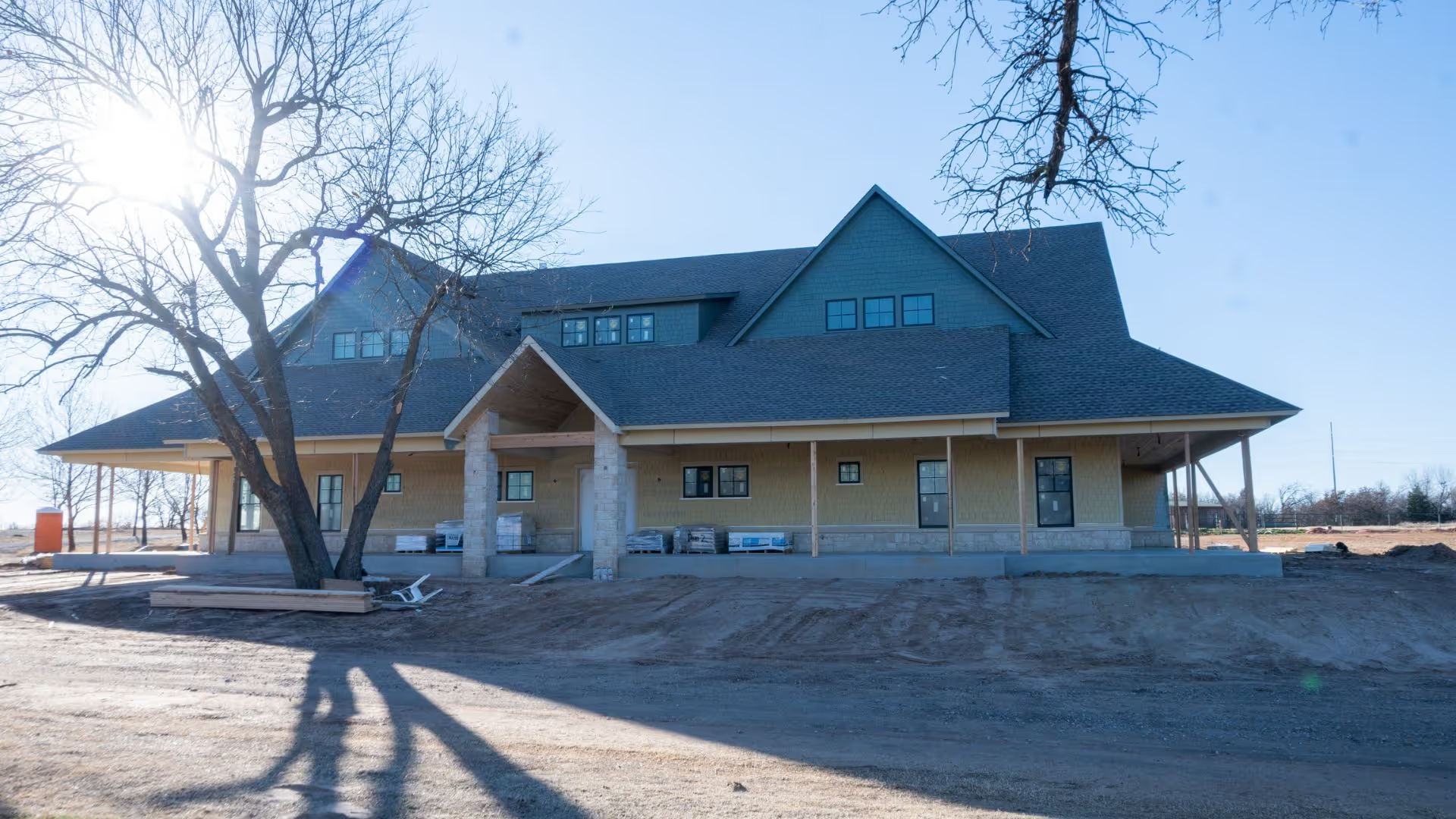
Because HIA recognizes the importance of community in the recovery process, The Healing Center will offer a variety of group activities, from sports and art therapy to group prayer and Bible studies. A dedicated team of licensed counselors, therapists, support staff, and volunteers who understand the complexities of addiction and substance abuse will guide residents in these activities. With this kind of support, residents will build meaningful relationships with others who have struggled with substance abuse as well as staff members who care about each individual.
This is one of the most transformative endeavors HIA has ever undertaken. This facility will be a place of true restoration sustained by the support of a called and compassionate staff. God is preparing a place for those in need, and they will leave renewed and prepared for whatever He has for them next.
The HopeLine: Flipping the Switch on Addiction Recovery
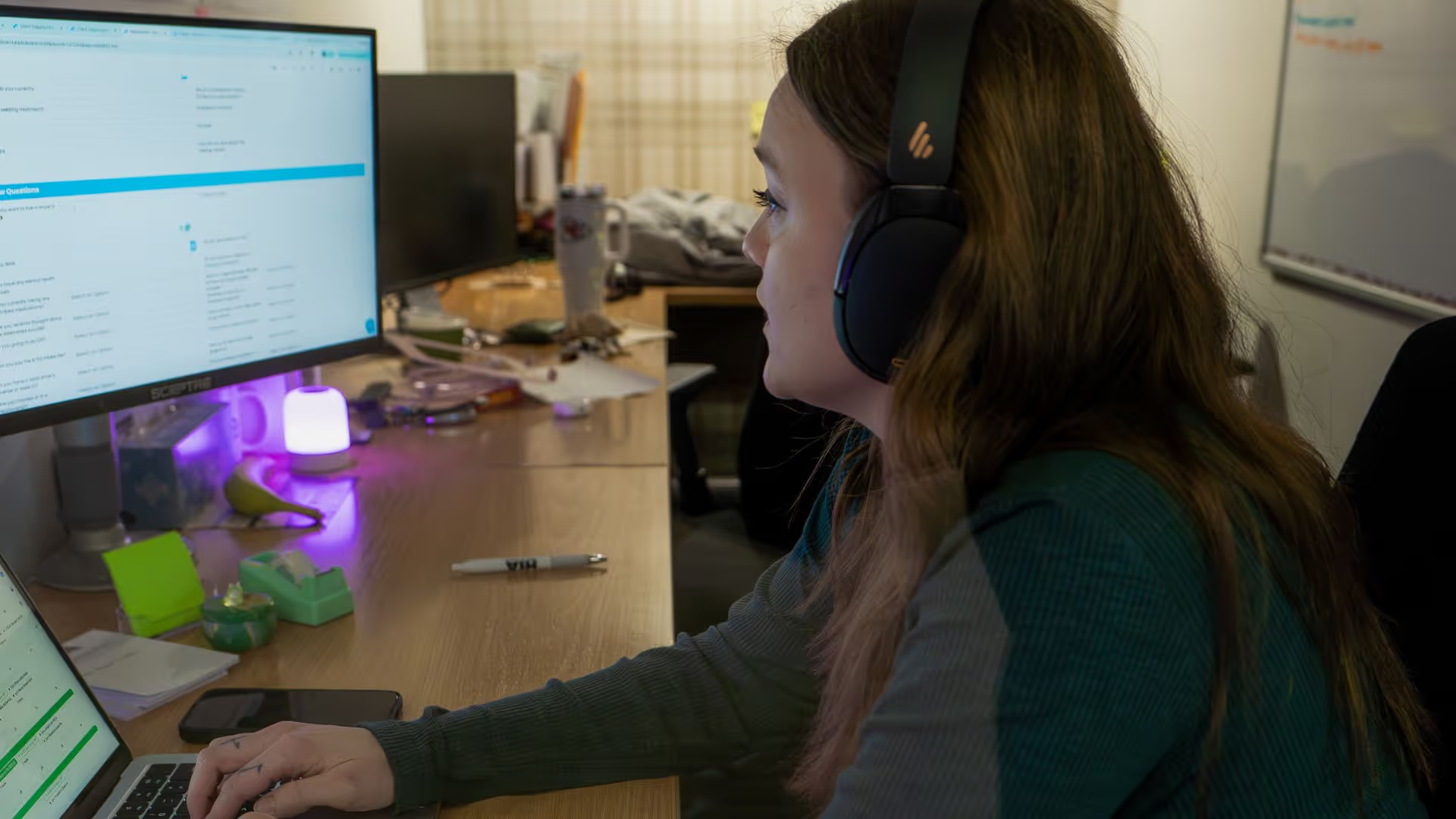
The HopeLine: Flipping the Switch on Addiction Recovery
Every call to the HopeLine sounds a little different, and some are more memorable than others. For Jade Jolly, one of her most memorable calls came from a mother desperately searching for help for her daughter.
At the time, the mother on the other end of the line was completely lost. Her daughter was an addict, and nothing was snapping her out of it — not even jail time. She called the HopeLine, searching for something else to try, pleading with Jade to help her save her daughter.
“She called for help because her daughter was so far gone that she finally realized that what she was doing was not helping her daughter,” Jade shared.
Throughout the course of a year, Jade continuously answered phone call after phone call. With each call, the mother became more desperate as exhaustion and fear took over.
Then, the calls just stopped.
“Her daughter didn’t have motivation and did not really want to be clean. She had no desire to pursue recovery,” Jade explained. “But after four months of silence, something clicked with her daughter, and everything changed.”
During those months of silence, the daughter had returned to jail. Jade spoke with her towards the beginning of this period of incarceration and could tell she simply wasn’t ready. But after a few months in jail, her mindset shifted. She started spending more time in her Bible and having deeper conversations with her mother about faith and what life could look like if things were different.
When the daughter was released from jail, she reached back out to Jade — and this time, she had fully dedicated herself to coming to Hope is Alive. She didn’t want to move from Tulsa to Oklahoma City, but she did it anyway to move into one of the homes.
Since entering Hope is Alive, her journey has not been without setbacks. She entered the program with additional challenges, including a diagnosis that can make maintaining healthy interpersonal relationships more difficult.
The good thing is that she had self-awareness about her diagnosis and an understanding of how it could impact her recovery. She didn't deny the fact that she had this diagnosis, and she was willing to go to therapy and work on coping skills. Because of that, she was allotted the ability to come into the program.
“As far as I know, she is doing great. She’s done everything we’ve asked her to do and is focused on her recovery,” Jade shared. “Watching the switch in her brain flip from not wanting to be sober to fully embracing our program has been incredible. She’s undergone such a drastic change.”
For Jade, this story is a reminder of why the HopeLine exists. Not every call ends with an immediate solution, and not every person is ready the first time they reach out. But every call matters, and every call has the opportunity to change a life.
Finding Hope Podcast: Trusting God With a New Year
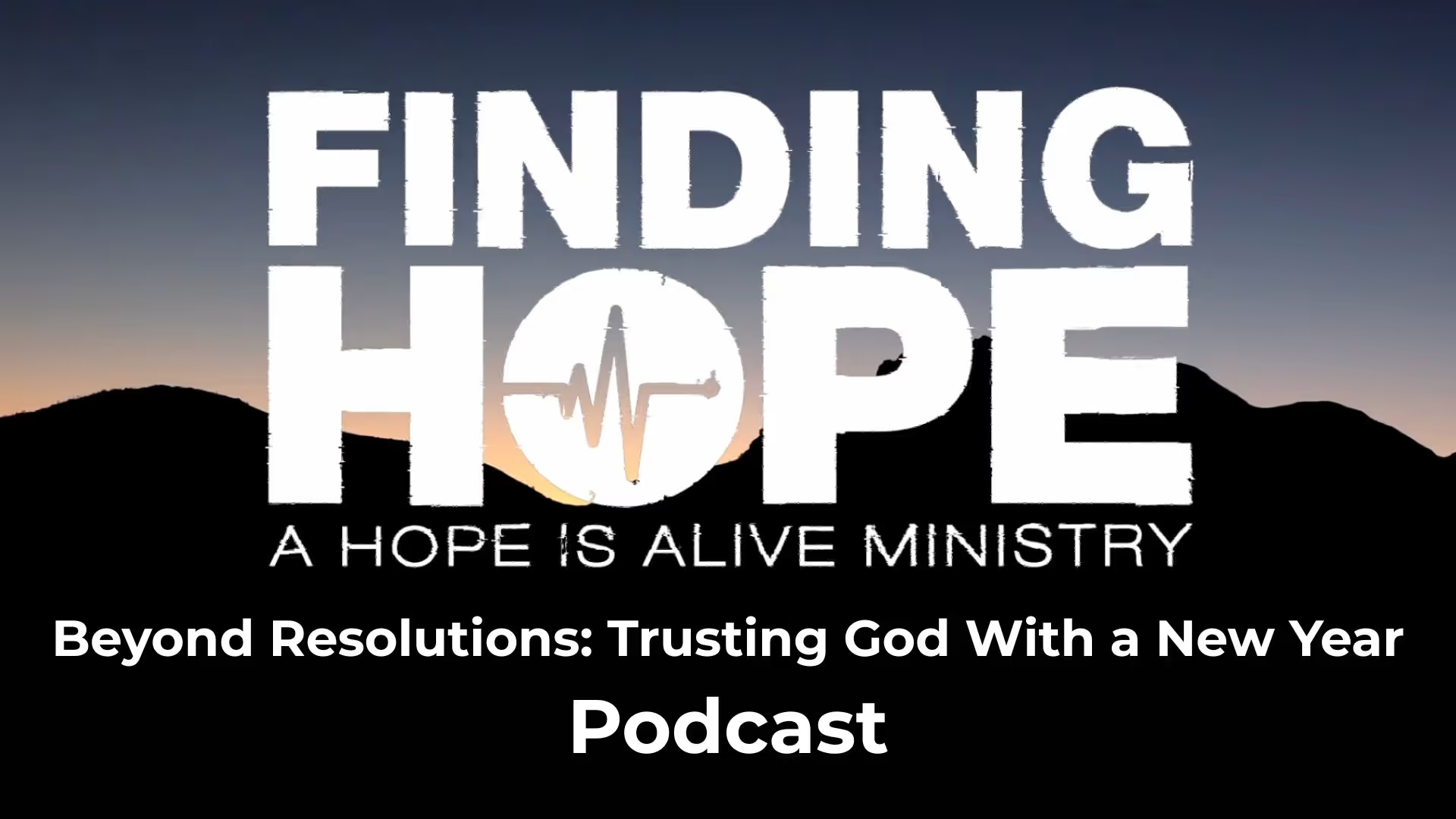
As a new year begins, many of us think about fresh starts, goals, or resolutions — but does a new year really bring lasting change?
In this episode, we reflect on a powerful quote from Shane Pruitt: "A new year doesn't make a new you, if you keep living the way you've always lived. A new you only happens when you let an eternal God take over, and He changes how you live."
This is especially true for those loving someone struggling with addiction.
We talk about what real change might look like — meeting your own needs, taking a courageous step to attend a Finding Hope meeting, or simply learning more about what Finding Hope is all about.
If you’re longing for rest, healing, or a fresh start, we also invite you to sign up for this year’s Finding Hope or Hope After Loss retreat.
For more information, visit:
Surviving a Relapse
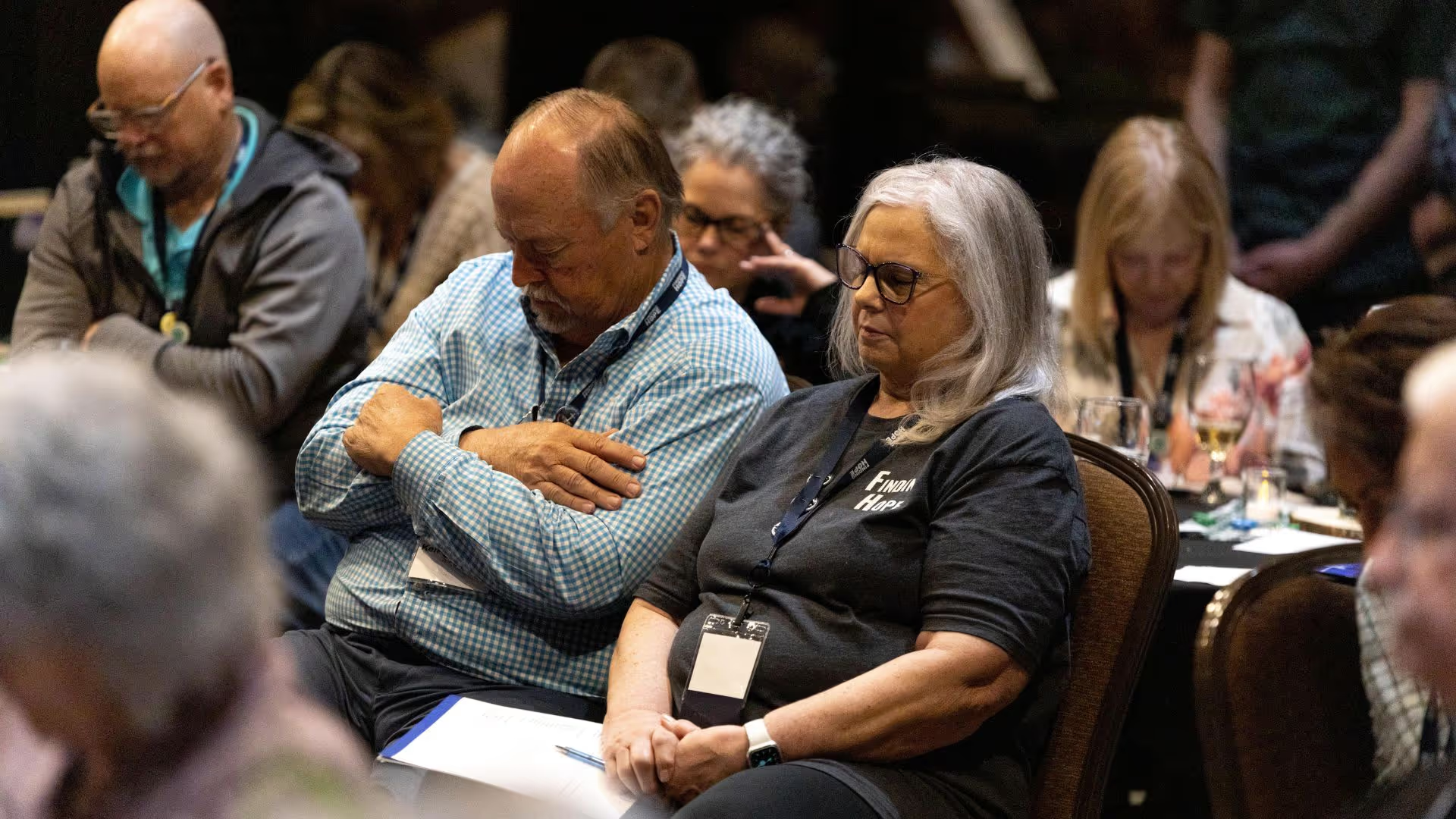
Surviving a Relapse
When we love someone who struggles with substance use disorder, we often live in fear of relapse. We wonder if we will make it through if it happens, because statistics from the National Institute on Drug Abuse indicate that anywhere from 40 to 60 percent of people with addiction will experience a relapse. Relapse often feels like a “when, not if” situation.
If You Suspect a Relapse
If your loved one has relapsed or you suspect they have, know that you will make it through. The initial emotions — panic, disappointment, fear — are normal. And there are healthy ways to respond once you move beyond them.
Five Steps to Help You Through Their Relapse
Step One: Don’t Shame or Blame
Your loved one likely already feels guilt and shame. Approach them with love and understanding, and choose a time when both of you are calm.
Ways to approach them:
- “I noticed [behavior], which leads me to believe [concern]. Is that true?”
- Use “I feel” statements:
- “I feel anxious when….”
- “I feel scared when….”
- “I feel nervous when….”
Step Two: Set Boundaries
Boundaries protect you, not punish them. Examples:
- They aren’t allowed in the house if actively using/drinking.
- You won’t bail them out of jail.
- You won’t give them money.
What boundaries do you have in place if a relapse happens?
Step Three: Feel to Heal
Don’t suppress your emotions — acknowledge them.
- Reach out to your Hope Giver.
- Journal.
- Pray.
- Put it in your God box.
- Talk to a counselor.
Step Four: Encourage, But Don’t Rescue
Encourage them to get help, but let them take ownership of their recovery plan. If we go into "fix-it mode," we risk our own emotional relapse.
Step Five: Prioritize Self-Care
Taking care of yourself is essential. You cannot want their recovery more than they do. Here are some ways to care for yourself:
- Go for a walk.
- See a counselor.
- Attend a Finding Hope meeting.
Relapse is Not the End
Relapse does not mean failure! Addiction is a chronic disease requiring daily treatment, so use relapse as an opportunity to learn and grow.
You are not alone. Keep choosing hope.
“I will lead the blind by ways they have not known, along unfamiliar paths I will guide them; I will turn darkness into light before them and make the rough places smooth. These are the things I will do; I will not forsake them.” Isaiah 42:16
For more information, visit:
Recovery Done Differently: An Inside Look at Hope is Alive
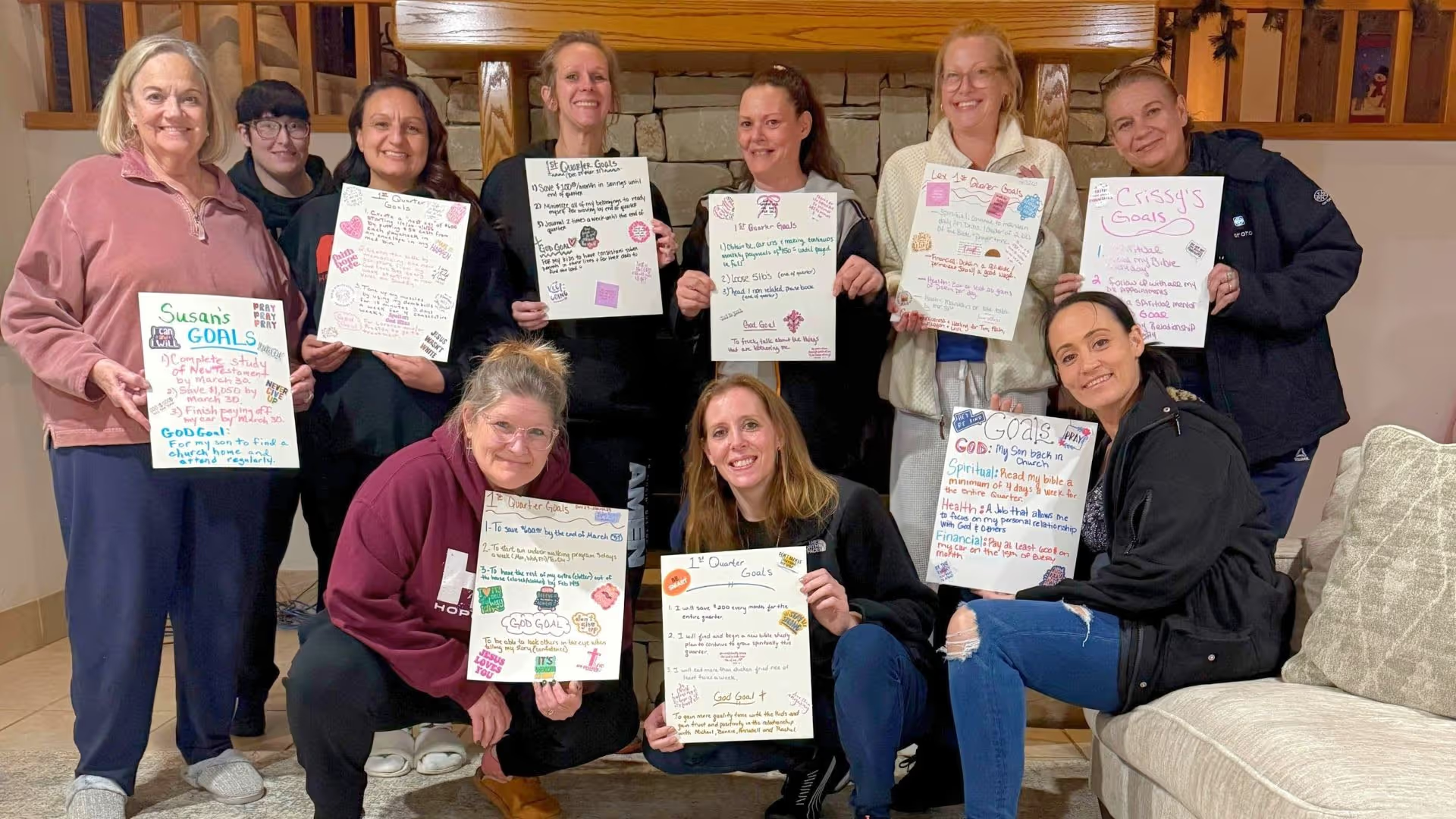
Recovery Done Differently: An Inside Look at Hope is Alive
People often ask us what makes Hope is Alive different.
Yes, we provide safe homes.
Yes, we offer structure and accountability.
Yes, we walk men and women through addiction recovery.
But the real difference is our culture.
Inside every Hope is Alive home, there are certain standards we uphold, a mindset we protect, and a faith we stand on. Collectively, we call this our Resident Culture Code, and it defines who we are long after addiction no longer does.
We Live Next-Level, Radically Changed Lives
At Hope is Alive, sobriety is just the starting point. Our residents pursue change in every area of life — faith, relationships, work ethic, leadership, and purpose. Our residents are men and women learning how to live fully alive, not just clean.
We Get to Be Here
Gratitude shapes our homes. Residents know they aren’t here by accident. They’ve been given an opportunity many never get to heal, grow, and rebuild. That perspective changes how they show up every day.
Fun is Required
Inside our homes you’ll find laughter, brotherhood/sisterhood, shared meals, workouts, fishing trips, and life lived together. Fun builds connection, and connection saves lives.
We Show Up and Set the Tone
Our residents understand that people are watching. Families, communities, and those still struggling want to know if real transformation is possible. So our residents and alumni lead by example, showing what faith-filled recovery can look like.
We Take Pride in Our Homes
Our homes are more than houses. They’re places of healing. Residents learn responsibility and ownership, sometimes for the first time in years. As they care for their environment, they begin to care for themselves, too.
We Trust Our Leaders
Our homes are built on trust — trust in God first, and trust in the leaders placed to guide and protect our residents in sobriety.
We Give Back What Was Given to Us
No one gets here alone. Time, encouragement, prayer, service — our residents learn to freely give what was freely given to them. This outward focus is a powerful step in breaking the chains of addiction.
We Celebrate Everything
Every sober day matters. Every win is worth celebrating. At Hope is Alive, encouragement is constant. Victories, big and small, are shared together. Always.
We Stand in the Gap for Each Other
Brotherhood and sisterhood are essential. When someone stumbles, others step in. Our residents learn they don’t have to walk alone anymore, and they never forget that.
Jesus is Always the Answer
Above all else, our culture is rooted in faith. We believe lives are restored through Christ, and everything we do flows from that truth. Our residents are alive today because of grace. And they live with purpose because of it.
Be a Part of Our Culture
Culture at Hope is Alive isn’t just something we talk about — it’s something we live out together.
Be part of a community where hope is alive by donating or volunteering today.
The Isolation of Addiction
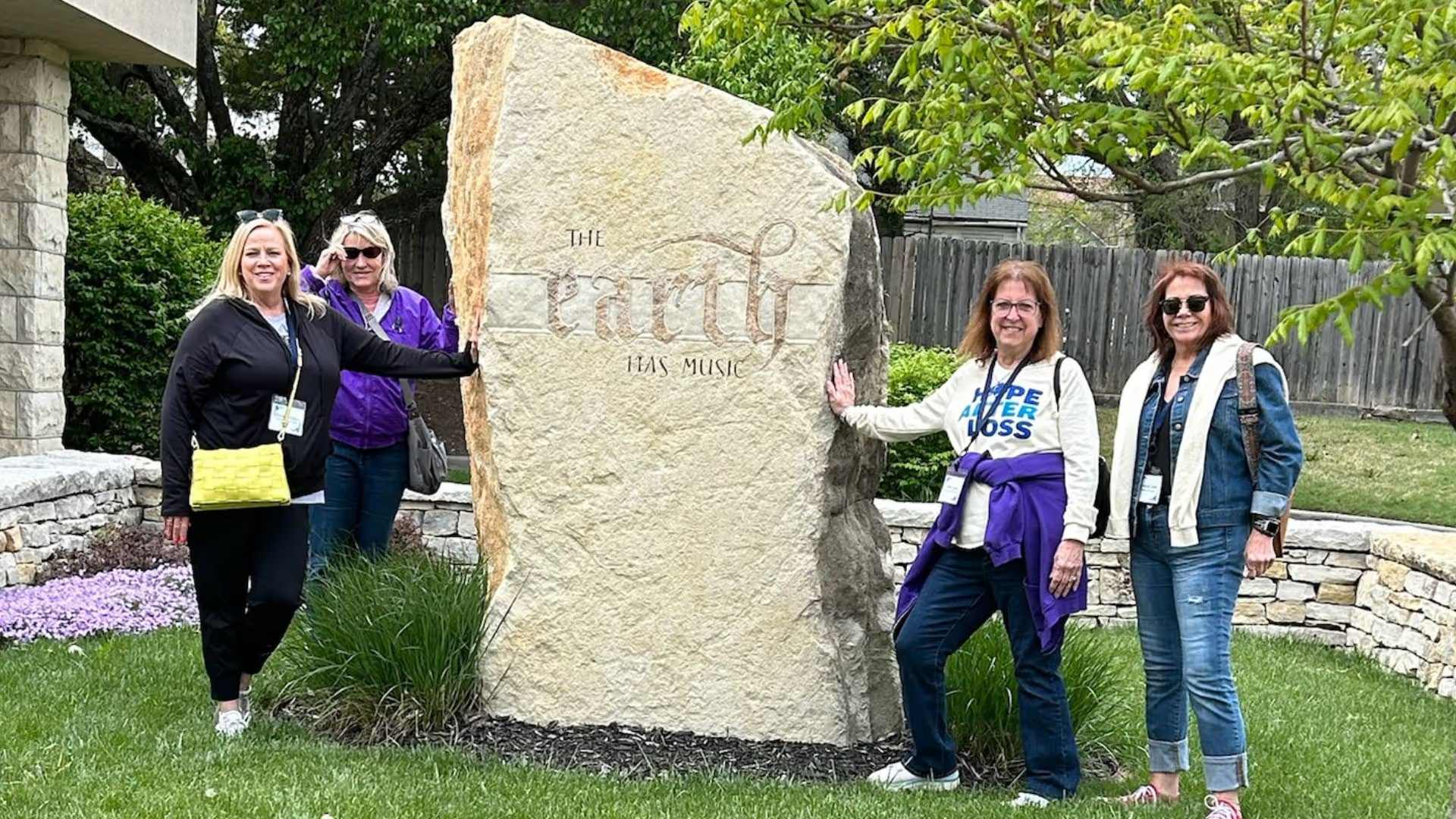
The Isolation of Addiction
Do you feel like you are on an island?
Some may think living on an island would be an amazing experience filled with adventure and relaxation. But before long, your resources would run out, the storms would come, the bugs would invade, and isolation would hit.
When we love someone in addiction, it can feel like we are stuck on an island with nowhere to go and no one to turn to. Will this storm ever stop? Will the bugs go away? Will I ever see family and friends again? Can I ever enjoy life again?
The answer is yes, but you are the one who must make the decision to seek help for yourself. You must put in the work to get off that island. Is it easy? No. But is it necessary? Yes. Will you be grateful you did? Yes.
If you feel like you are stuck on an island alone, it’s time to use the resources you do have to get off it. Attend a Finding Hope meeting. Reach out to another Finding Hope member. Listen to the Finding Hope Podcast. Reread the Finding Hope book. Complete the Finding Hope YouVersion plans. Do it and know that an action always beats intention.
“Fight the good fight of the faith. Take hold of the eternal life to which you were called and about which you made the good confession in the presence of many witnesses.” 1 Timothy 6:12
For more information, visit:
Introducing The Healing Center

Introducing The Healing Center
We are so excited to introduce you to the next step in our ministry, The Healing Center.
The Healing Center is a brand new recovery center just outside of Oklahoma City, set on 75 peaceful acres, created to help men and women find freedom from addiction during their first 45 days of sobriety.
Here, we believe that lasting sobriety comes from radical life change. First, we provide a safe, structured environment where people can truly heal. Then, we address the roots of addiction. We don't just want to break old habits. We want to find the why and turn that weakness into purpose.
Our Christ-centered community and holistic faith-based approach set us apart from every other addiction recovery program available.
At The Healing Center, residents are surrounded by encouragement, support, and accountability as they walk out their journey towards freedom. Our staff is passionate about seeing lives transformed from the inside out. And we are committed to helping you achieve lasting sobriety.
The Healing Center is a place designed to care for every son and daughter, brother and sister, mother and father — anyone ready to focus on what matters the most, their recovery.
We know that with hope, healing is possible, lives can be rebuilt, and families can be restored.If you'd like to learn more about The Healing Center, or if you have someone struggling with addiction today, please visit our website. We would love to help you and your family take the next step toward freedom.
With hope,
Lance and Ally Lang, Hope is Alive Founders
How to Stop Pain from Consuming Your Life
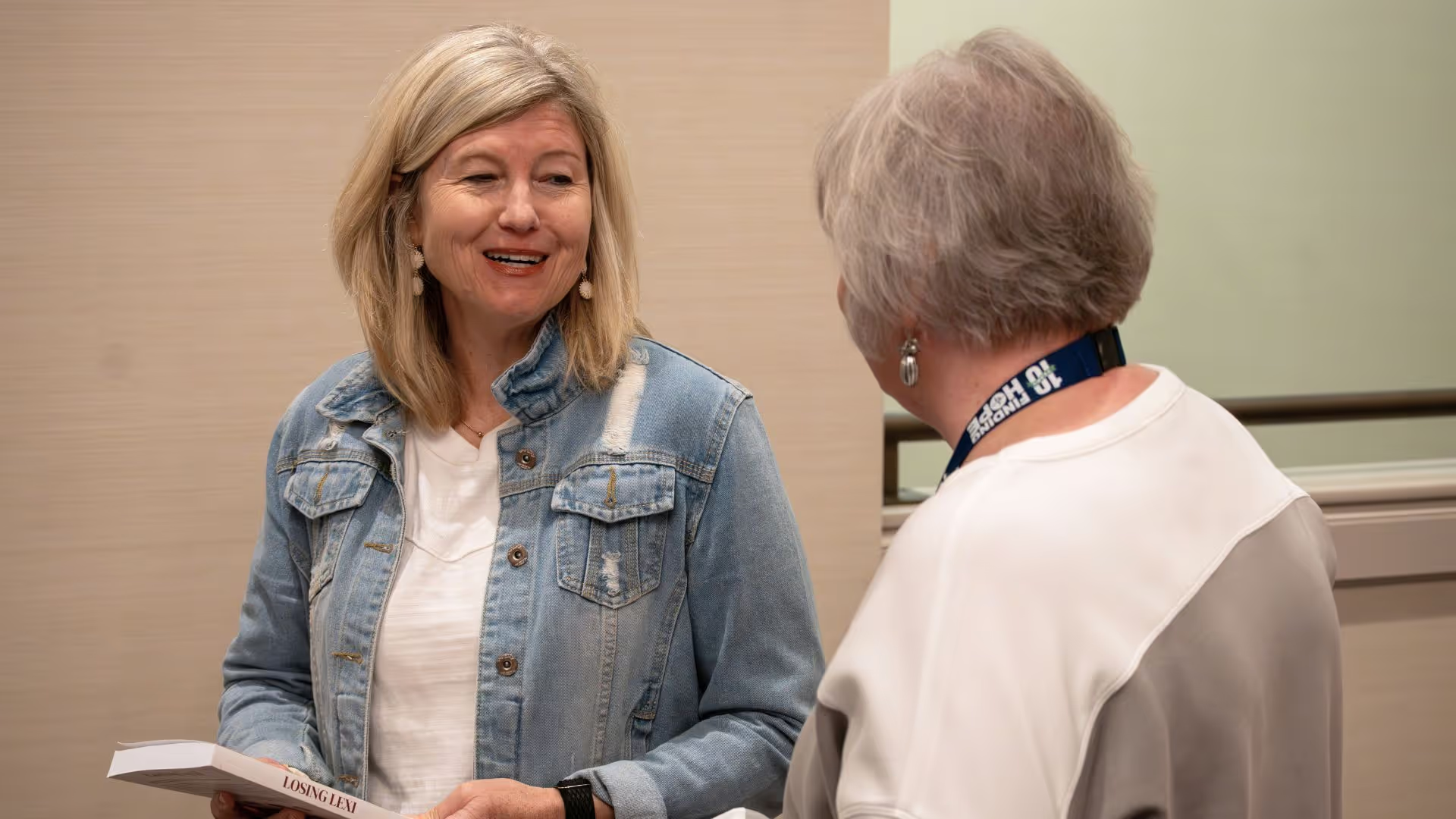
How to Stop Pain from Consuming Your Life
The more our pain consumes us, the more it will control us.
Can you relate? I know I can. Many of us loving an addict can.
Pain is real. Hurt is real. Fear is real. Anger is real. And when we allow these emotions to consume us, then they will start to control us. They will control our reactions to others. They will control how we feel about ourselves. They will control how we see the world. Ultimately, they will cause us to give up our HOPE.
When we are in pain, we begin to think that we will never get out of this cycle and that we will be stuck in pain forever. I remember thinking, Will I ever be happy again? I didn’t think it was ever possible. As pain and suffering consumed me, that is all I could think about. I truly believed that this was what the rest of my life would be like.
But I am here to tell you that I am now happy. I found peace because I no longer let pain consume me. But I am not immune to pain, and you are not either. That is why we must learn how to work through pain in a healthy way.
Here are some helpful tips to get us through pain so that it does not control us:
- Recognize that you are in pain. By acknowledging that our pain is real, we can begin to heal.
- Give the pain to God for Him to carry.
- Pray the Serenity Prayer and make a list of things that are in your control and things that are not in your control.
- Find a healthy way to release the pain. Go for a walk, listen to worship music, journal, read God’s word, call another Finding Hope member, or attend a Finding Hope meeting. Find what works for you.
The pain will not go away overnight, but we can find peace and hope again. Don’t let pain control you anymore; take that first step towards healing.
“And the God of all grace, who called you to his eternal glory in Christ, after you have suffered a little while, will himself restore you and make you strong, firm, and steadfast.” 1 Peter 5:10
For more information, visit:
Habakkuk | Bible Reading Plan
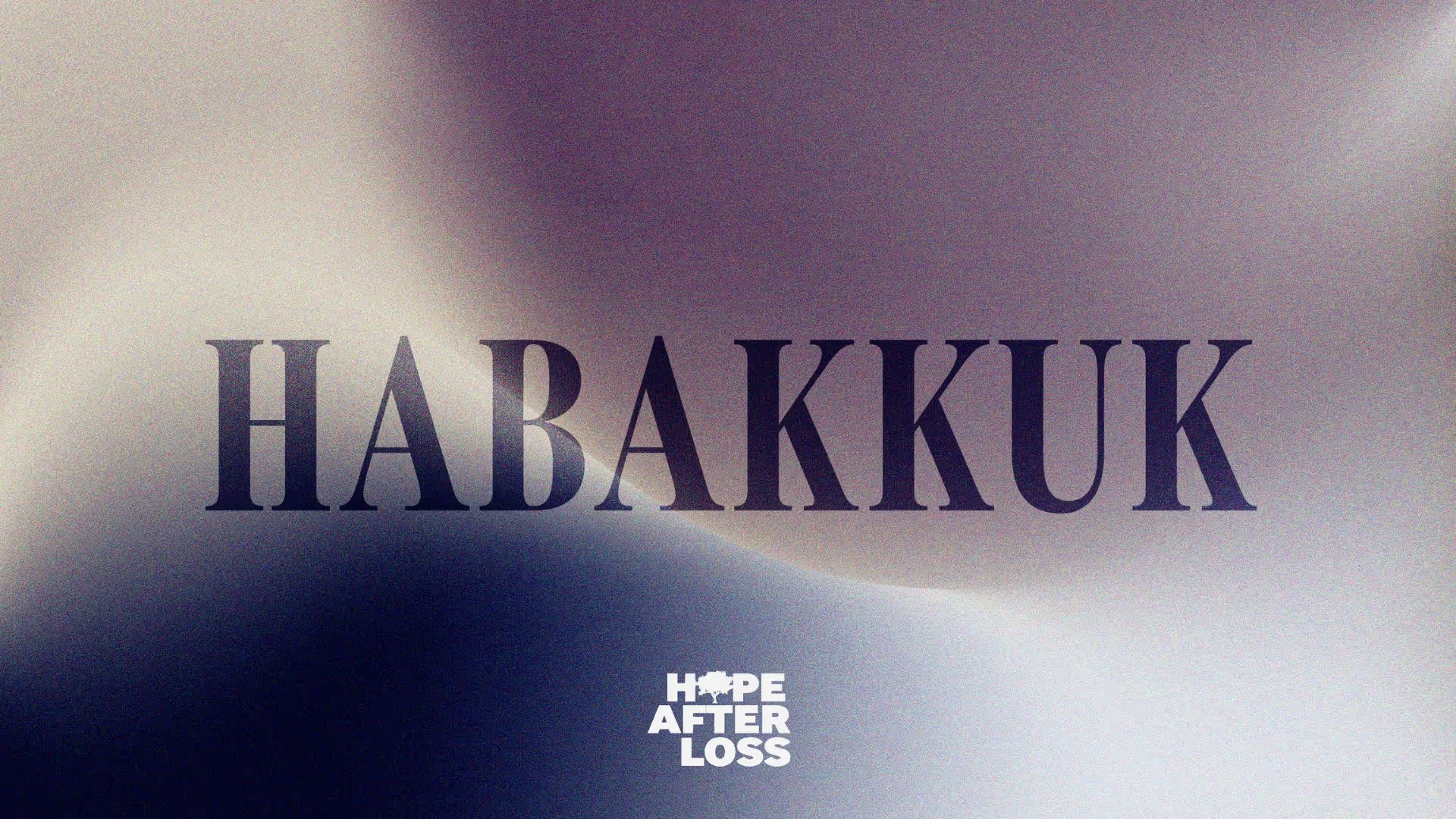
Habakkuk: Wrestling With God and Trusting Him Anyway
Inspired by Tammy Posey, who lost her son Benjamin Posey to addiction, this six-day devotional is designed for those grieving the loss of a loved one to addiction. If you’ve ever sat with unanswered questions, replayed painful memories, or wondered where God was in the middle of it all, this plan is for you. Through Habakkuk’s honest conversations with God, you’ll find permission to bring your own hurt, doubts, and “what ifs” into His presence.
Start the plan here: Habakkuk: Wrestling With God and Trusting Him Anyway
Shame Fueled by Addiction

Shame Fueled by Addiction
“Shame can hold us back, hold us down, and keep us staring at our feet.” —Melody Beattie, Beyond Codependency
It’s easy to feel shame when you love someone who struggles with substance use. This shame you may be experiencing or have experienced is real. Until you recognize it for what it is, you can’t begin to heal.
More often than not, shame keeps us weighed down, feeling like we’re stuffed in a box. This leads us to feeling trapped, like there is no way out. The enemy wants us to feel stuck there. He wants us to feel weighed down. He wants us trapped. He wants us to feel alone. He wants us to believe no one else is going through it. He wants us to believe it’s our fault. He wants to keep you where he has you, with little to no hope.
He doesn’t want you to share your story. He doesn’t want you to connect with others. He doesn’t want you to lean on God.
I remember the shame I felt when I discovered my husband was an alcoholic. What will people think? Will people think I am the reason he drinks? He's a Christian and a good guy — will others judge him? If I stay, will people judge me?
I also recall the shame I felt as I lied when he went to rehab. He is just in Texas for a little bit.
I even carried the shame into my first Finding Hope meeting… What will these people think of me as a wife? What if I see someone I know?
Again, these are all lies from the enemy.
So how do we let go of the shame so we can begin to heal?
- Verbalize the way you feel: ”I am feeling shame from my mother’s drug addiction.” and say out loud, “My husband (son, granddaughter, etc) is an alcoholic.” This allows you to admit your honest feelings to yourself and acknowledge that your loved one does struggle.
- Write down all the shame you feel, as well as any other feelings that are keeping you trapped.
- Share what you’ve written with a safe person like a trusted friend, a Finding Hope Leader, or a licensed counselor.
- Tell that one person or group that you have been lying to about what is really going on with your loved one. It will be more freeing than you know.
- Get connected or stay connected to a Finding Hope group!
Don’t let the enemy keep you from the HOPE we find in Jesus.
”In You, O Lord, I put my trust; let me never be ashamed; deliver me in Your righteousness.” Psalm 31: 1
For more information, visit:


